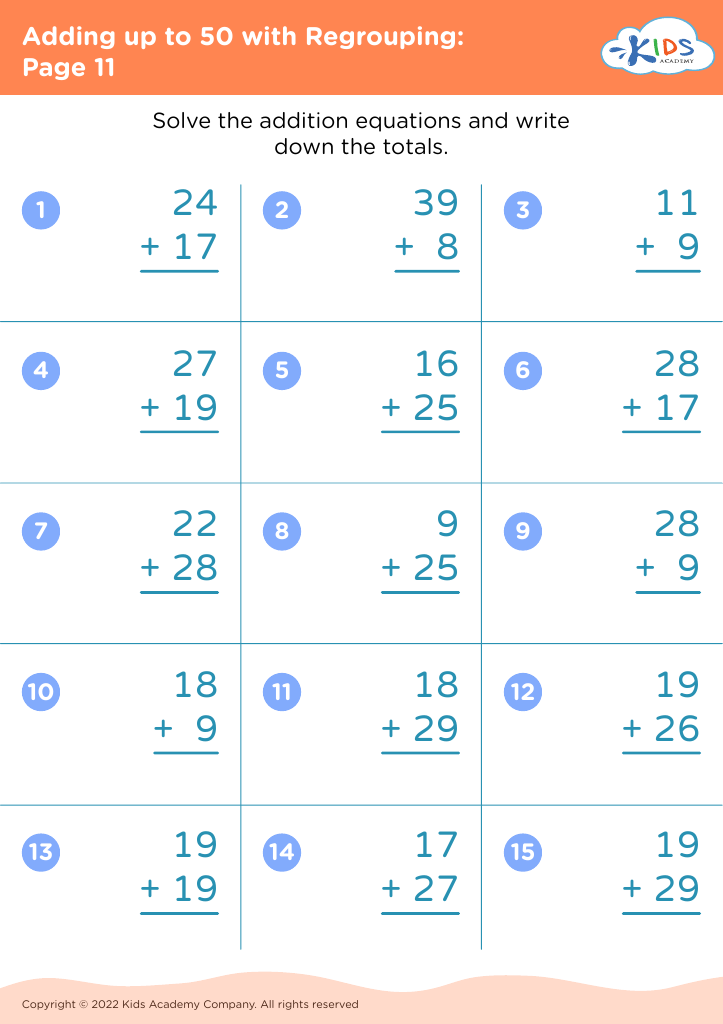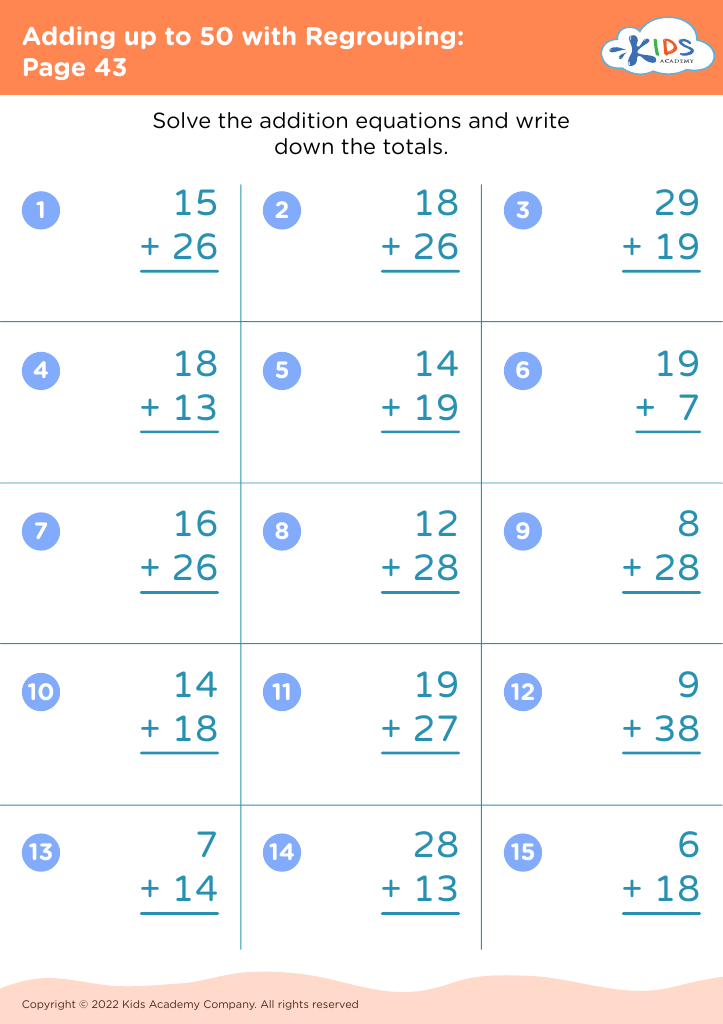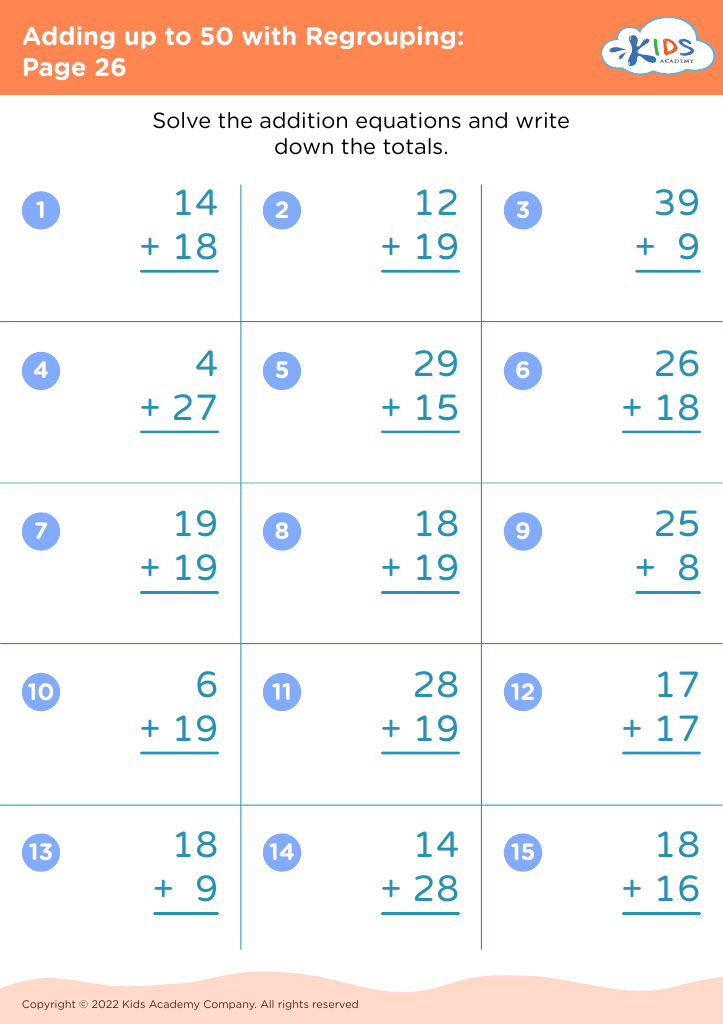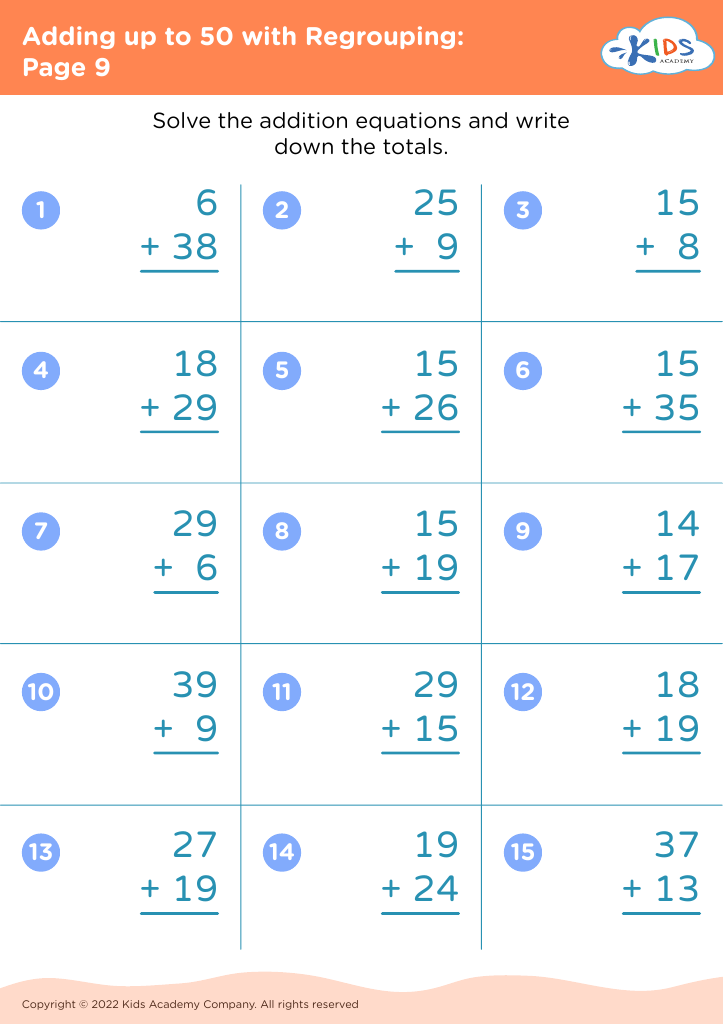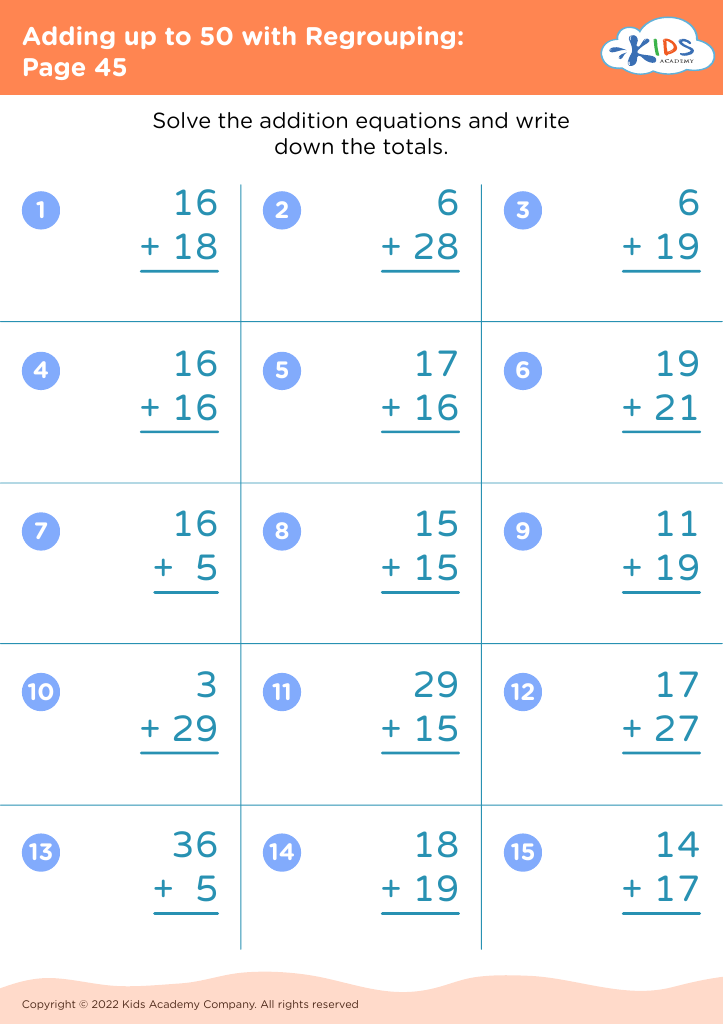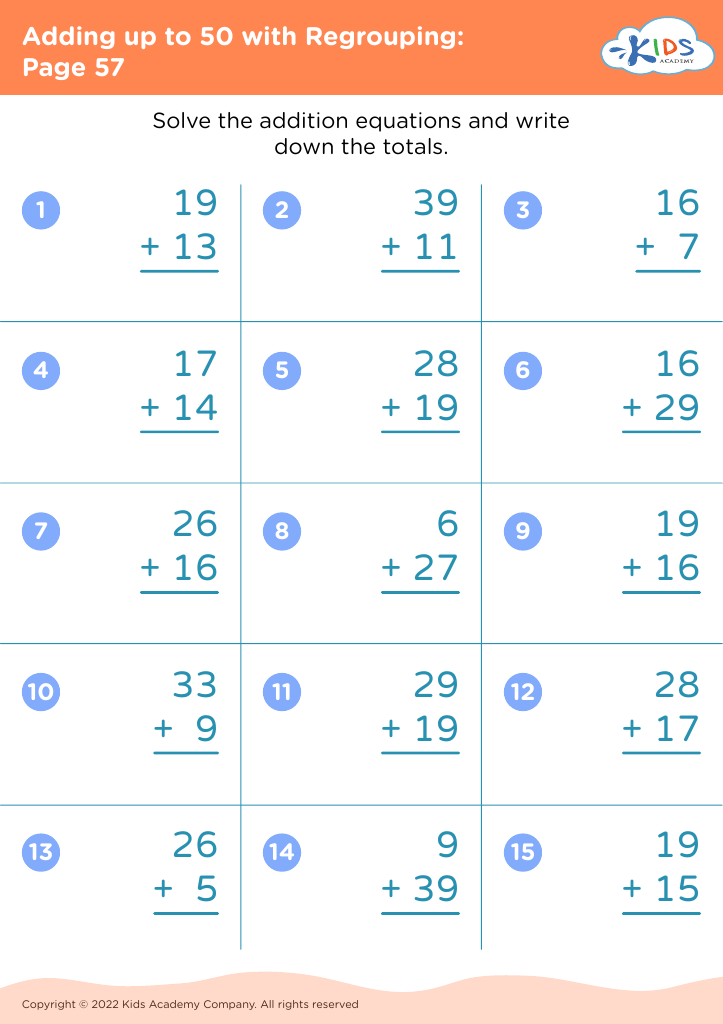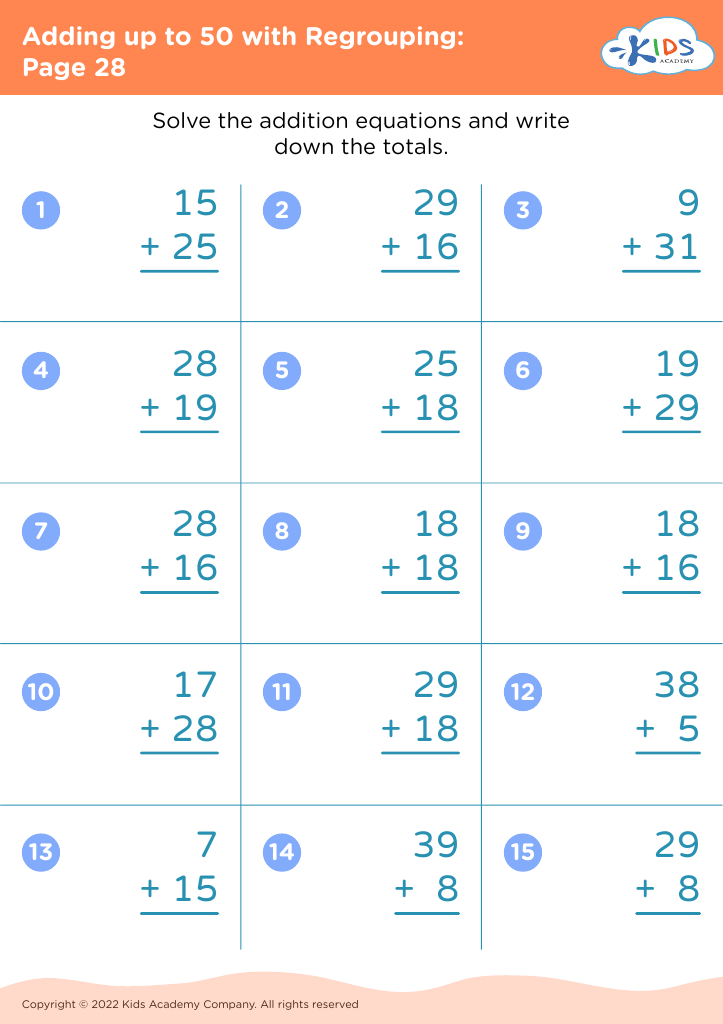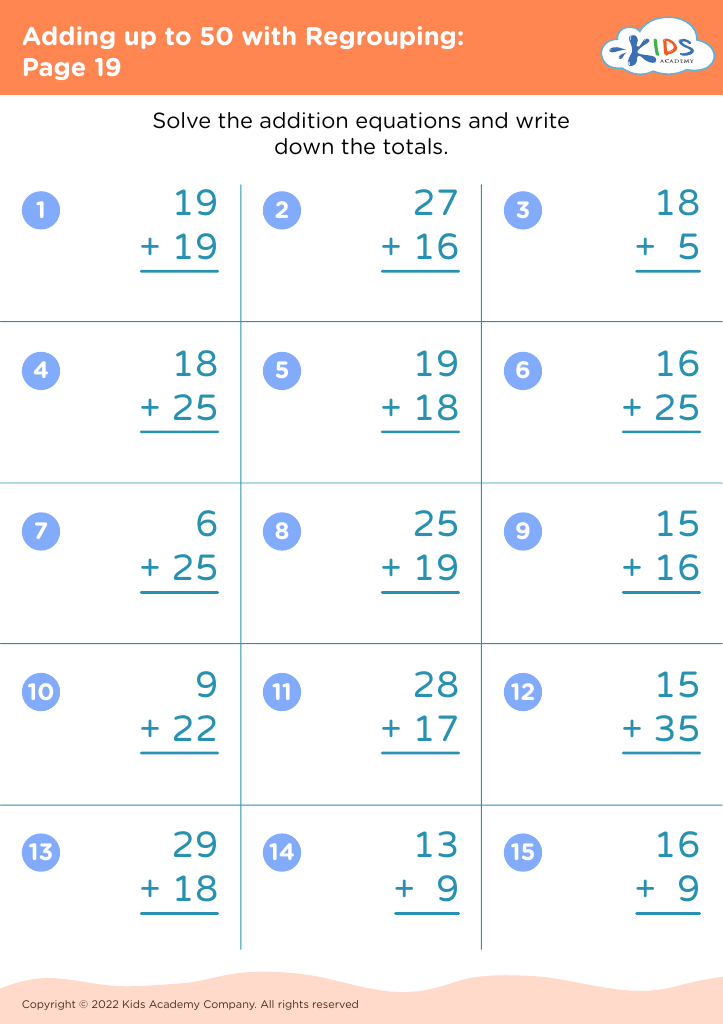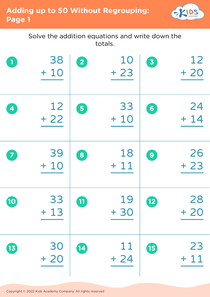Number Recognition Adding up to 50 with Regrouping Worksheets for Ages 3-8
14 filtered results
-
From - To
Welcome to our engaging "Number Recognition Adding Up to 50 with Regrouping Worksheets," designed for children ages 3-8! These interactive worksheets encourage the development of essential math skills as young learners practice counting, composing, and decomposing numbers. With a focus on regrouping, students will build their confidence in number recognition and foundational arithmetic. Our resources support various learning styles and can be easily adapted for home or classroom use, making math fun and accessible. Let your child explore the world of numbers with activities that foster curiosity and a strong mathematical foundation, setting the stage for future success in their education!
Number recognition and addition, especially involving regrouping, is foundational for young learners aged 3-8. During this crucial developmental period, children lay the groundwork for mathematical understanding. Recognizing numbers helps kids identify quantities, measure their environments, and make sense of their world. As they progress to adding up to 50 with regrouping, they develop critical skills in problem-solving, logical thinking, and cognitive organization.
Understanding regrouping supports children in mastering more complex concepts, such as borrowing and carrying, which are vital for future math success. These skills enhance their ability to tackle larger numbers and more advanced operations in later grades. Additionally, this educational aspect fosters a sense of confidence, empowering learners to approach math challenges with a positive mindset.
Moreover, engagement in number recognition and addition can be boosted through fun and interactive activities, promoting enthusiasm for learning. Parents and teachers should realize that without these essential skills, children might struggle in mainstream education, resulting in frustration or anxiety towards math. Therefore, prioritizing number recognition and regrouping creates a strong mathematical foundation, paving the way for lifelong learning and a positive attitude toward mathematics. Engaging with these skills early on sets the stage for future academic and personal success.


